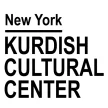Cemile Sahin, artist, filmmaker, author
Cemile Sahin was born in 1990 to Kurdish parents who had fled to Germany. She studied fine art at Central Saint Martins College of Art and Design in London and at the Universität der Künste in Berlin. Today she lives and works in Berlin.
She moves among film, literature, and visual art using all these media, singly or together. Her work is receiving significant recognition in the German art world.
Visual Art
 In her visual art, Sahin arranges digitally produced images layered over multiple surfaces and combined with posterlike text. She layers documentary images, video, and text over diverse backgrounds. She even incorporates AI and video game technologies.
In her visual art, Sahin arranges digitally produced images layered over multiple surfaces and combined with posterlike text. She layers documentary images, video, and text over diverse backgrounds. She even incorporates AI and video game technologies.
In several multimedia art exhibitions, Sahin has highlighted Lausanne as the epicenter from which a century of destruction of Kurdish people and other peoples emanated. The city was site of the signing of the Treaty of Lausanne in 1923, where the UK, France, Italy, Japan and Turkey divided Kurdistan and Kurdish people among several countries, giving rise to in a century of displacement, disenfranchisement, dehumanization, and destruction for Kurds.
Rifle in the Closet (2023), currently at Nassauischer Kunstverein Wiesbaden, focuses on drone technology. Today the region between Lausanne and Zurich is a center of military and civilian drone development, extending battlefields almost without limit. The show includes images of the Palais de Rumine, where the treaty was signed. This month (June 2023) the show received a review in the prestigious periodical Art Review.
in 2022, her installation Drone Valley was held at the Lyon Biennale. it focused on the Turkish-Syrian border, the boundaries of which were established in the 1923 treaty. Today that border is marred and enforced by a Turkish-built wall. The show featured blown-up images of the wall sourced from Google Maps, with a text attributed to Atatürk: “the future is in the sky / because nations that cannot / protect their skies / can never be sure of their future.”
Then in 2021 she displayed an installation It Would Have Taught Me Wisdom at Esther Schipper in Berlin. This installation featured a digitally reconstructed sculpture of Minerva, the Roman goddess of warfare. She wears the colors of the nations who at that time were undertaking military action in the Middle East. Against the wall, a black-and-white image shows political leaders signing the Treaty of Sèvres (Lausanne’s aborted 1920 precursor, which would have created Kurdistan) is overlaid with a quote attributed to the Prussian king Wilhelm II: “that i did not receive in time / this French Minerva / it would have taught me wisdom.”
In 2021 Sahin received the Artist in Residence Stipend, awarded by the German Foreign Ministry in cooperation with the Association of Berlin Galleries (LVBG).
In 2020 she was awarded the Ars Viva prize for Visual Arts and became a fellow of the Junge Akademie at the Akademie der Künste Berlin.
Other Exhibitions
Her other exhibitions and projects include:
Manifesto of Fragility, Lyon Biennial, Lyon (2022);
A Song of Tigris and Euphrates, Kunsthalle Osnabrück, Osnabrück (2022);
Identität nicht nachgewiesen, Bundeskunsthalle, Bonn (2022);
Arbeit am Gedächtnis: Transforming Archives, Akademie der Künste, Berlin (2021);
Laboratory of Contested Space: Art and Truthtelling, Akademie der Künste, Berlin (2020);
ars viva 2020, Kunstverein, Hamburg (2020);
Where the Story Unfolds, Akademie der Künste, Berlin (2020);
ars viva 2020, Galerie für Zeitgenössische Kunst, Leipzig (2019);
Tell me about yesterday tomorrow, NS-Dokumentationszentrum, Munich (2019);
Kurdisches Filmfestival, Babylon Cinema, Berlin (2019);
Die Kant, Uferstudios, Berlin (2017).
Literature
Cemile Sahin is the prizewinning author of two novels in German, in both of which she explores the use of state power.
Alle Hunde Sterben (All Dogs Die) (Aufbau Verlag, 2020) is the story of nine people in a high-rise building in western Turkey. They all have experienced torture and violence and at the hands of the Turkish army and police.
Taxi (Korbinian, 2019), her first novel, won the Alfred Döblin medal.
Cinema
In January 2023, Sahin’s film Spring was screened at the Berlinische Galerie in Berlin.
The 43-minute film is part one of her project Four Ballads for My Father, which addresses the Southeastern Anatolia Project (GAP). That huge infrastructure program was set up to “develop” the Euphrates and Tigris rivers as water resources for commercial purposes. The numerous dams and hydroelectric power stations it has constructed have caused severe environmental and social problems for the people in the region. The project has allowed Turkey to manipulate and even cut off the water supply for Rojava, downstream.
The first part, Spring, tells the story of a Kurdish family whose homeland was flooded to make way for a dam. It shows episodes from the everyday lives of several family members as well as their worries. The father, Hasan, has been missing for 26 years—since he was wrongly arrested. Dicle, the daughter, has briefly been imprisoned in Istanbul, then released, but she is no longer allowed to leave the country and thus may not reunite with her relatives who live abroad.
“Sahin quotes cinematic genres ranging from the documentary to the political thriller, from film noir to the soap opera or telenovela,” observes the gallery program. “Despite the theme of structural violence and patriarchal power, this lends the work a light touch and laconic humour that make us eager to hear more.
In October 2023, Sahin was awarded the 2023 CIRCA Prize for Spring. The Cultural Institute of Radical Contemporary Arts, or CIRCA, awards the prize each year to a promising young artist, poet, performer, filmmaker, gamer, or activist. This year one thousand creative young people submitted entries on the theme of “hope.” Sahin will receive £30,000 to create a new work that will be presented on the CIRCA platform in 2024.
Read more about Cemile Sahin here.















